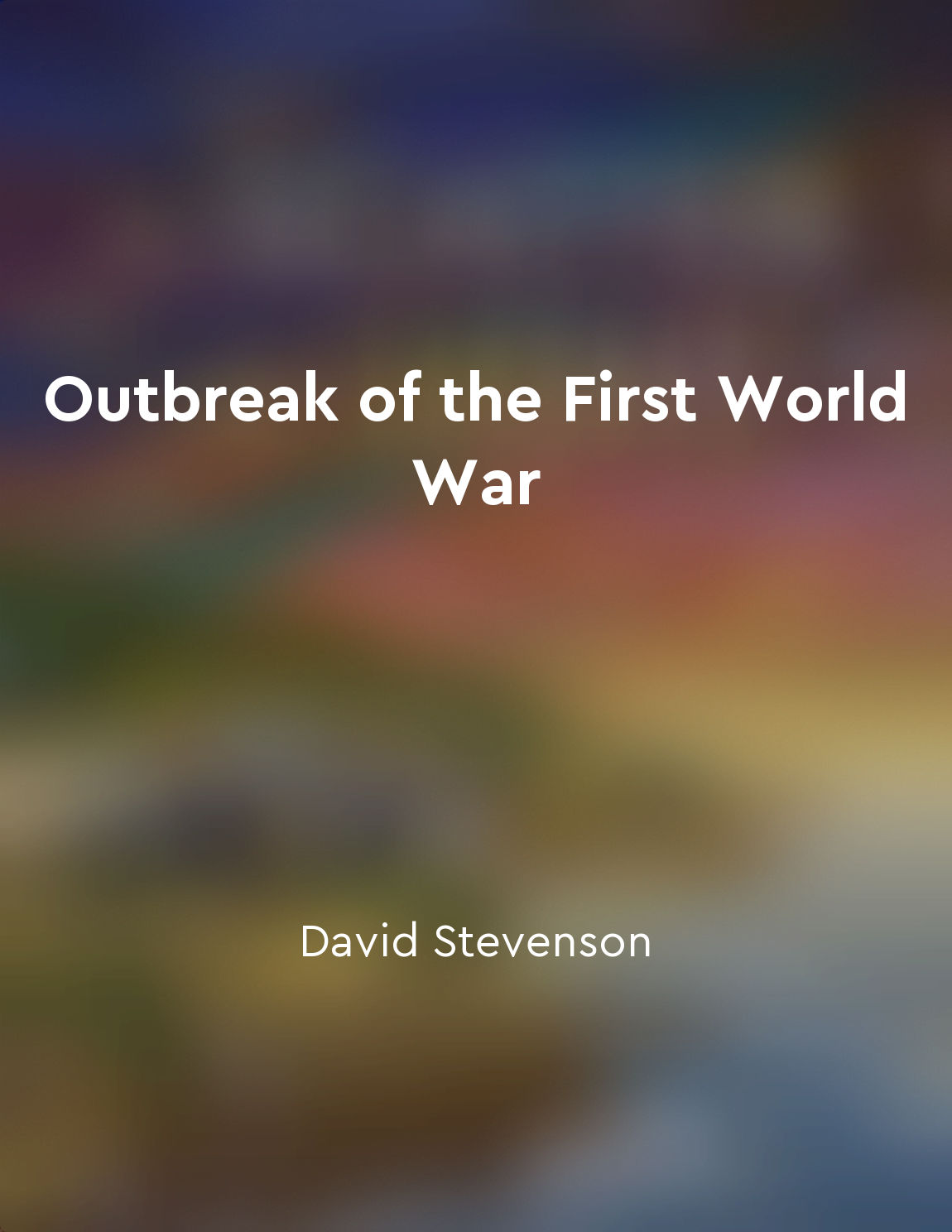Spark that ignited the war from "summary" of Outbreak of the First World War by David Stevenson
The outbreak of the First World War was not the result of a single event, but rather a complex series of interconnected actions and decisions that eventually culminated in a global conflict. However, historians have long debated what specific event can be considered the "spark" that ignited the war. One commonly cited event is the assassination of Archduke Franz Ferdinand of Austria-Hungary in Sarajevo on June 28, 1914. The assassination set off a chain reaction of diplomatic crises and military mobilizations that ultimately led to the declaration of war by numerous European powers. The assassination itself was carried out by a Bosnian Serb nationalist, Gavrilo Princip, who belonged to a group seeking independence from Austro-Hungarian rule. Austria-Hungary, eager to assert its authority in the region, issued a series of harsh ultimatums to Serbia in response to the assassination. Serbia, feeling threatened by these demands, turned to its ally Russia for support. Russia, in turn, mobilized its forces in anticipation of a potential conflict with Austria-Hungary. Germany, allied with Austria-Hungary, declared war on Russia, prompting France, allied with Russia, to mobilize its forces as well. The intricate system of alliances and rivalries in Europe meant that a local conflict in the Balkans quickly escalated into a continent-wide war. While the assassination of Archduke Franz Ferdinand is often viewed as the immediate trigger for the war, it is important to recognize that underlying tensions and rivalries among European powers had been building for years prior to the assassination. Nationalism, militarism, imperialism, and economic rivalries all contributed to a climate of suspicion and competition that made war seem increasingly likely. The assassination of the Archduke can thus be seen as the spark that ignited a powder keg of existing tensions and rivalries, rather than the sole cause of the war.Similar Posts
The war strained social and cultural norms
The Great War acted as a catalyst that disrupted the fabric of society in ways previously unimaginable. As men left their homes...

Europe in early 20th century
In the early 20th century, Europe was facing a complex web of political, social, and economic challenges that would ultimately ...

Legacy of the First World War
The impact of the First World War lingered far beyond the signing of the Armistice in November 1918. The conflict left a legacy...
Economic inequality sparked social unrest
Economic inequality has long been a source of discontent among the masses. When a small minority holds the majority of wealth a...
The guns of August had a lasting impact on the course of history
The actions taken in August 1914 were not just isolated events in history; they set off a chain reaction that would shape the c...
The Battle of the Marne proved to be a turning point in the conflict
The Battle of the Marne was a critical moment in the war, where the fate of Western Europe hung in the balance. As the German f...
